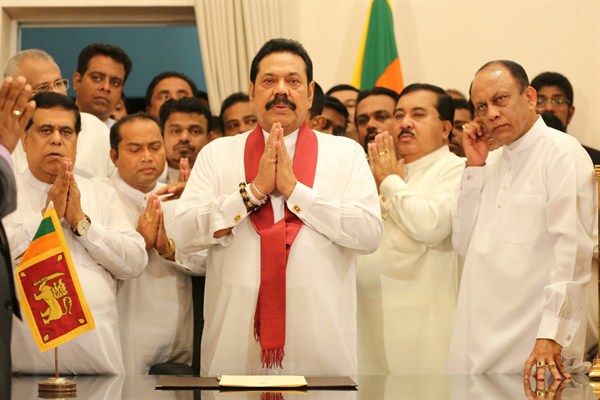Last Friday, the people of Sri Lanka got shocking news. President Maithripala Sirisena had abruptly fired the country’s prime minister—a move explicitly banned by the constitution. Confusing matters even more, Sirisena named his most bitter rival as the new prime minister, to step in for the man who had been his key ally in winning the presidency.
Sri Lankans watched as the sacked prime minister, Ranil Wickremesinghe, was replaced by former President Mahinda Rajapaksa, who appeared on television being sworn in as the head of the new government. But Wickremesinghe refused to accept Sirisena’s move amid cries that a constitutional coup had just occurred.
Suddenly, the country had two men staking their claim as the lawful prime minister. Independent newspapers and political figures warned that only a few years after emerging from a horrific civil war, Sri Lanka again risked plunging back into a “bloodbath.” Police canceled all personnel leaves as a precaution.

